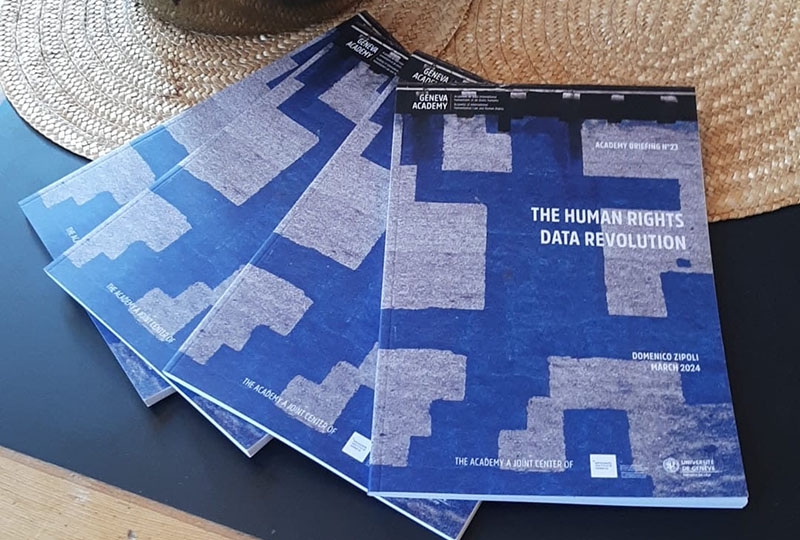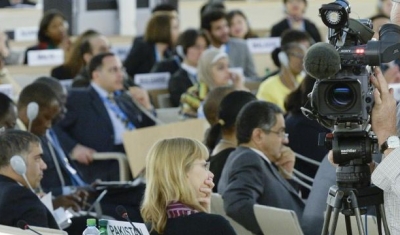Sustaining Digital Human Rights Monitoring and Ethical AI Governance
At the Impact Investment panel, Dr. Zipoli explored how digital human rights tracking tools can benefit from long-term, sustainable funding models. While impact investment and private-sector engagement can help drive innovation, he stressed that human rights monitoring must remain independent, rights-based, and free from undue influence.
‘Impact investment can help expand digital monitoring solutions beyond traditional funding models, enhancing their resilience and adaptability to global challenges. However, sustaining digital human rights monitoring requires ensuring that these investments do not undermine the independence or ethical governance of these tools,’ Dr. Zipoli emphasized.
During the Africa Ascends discussion, Dr. Zipoli highlighted how African nations are leveraging digital technologies to strengthen human rights monitoring and governance. He highlighted data governance as key to sovereignty, accountability, and policymaking, citing the African Union’s Continental AI Strategy and locally developed tools like HURIDOCS’ Uwazi and locally implemented tools like OHCHR’s National Recommendations Tracking Database (NRTD), which support civil society, NHRIs, and governments in managing human rights data.
He stressed the need for data sovereignty to ensure African-led digital governance and pointed to HRMI’s Rights Tracker and the CCPR Centre’s AI-powered pilot project in the DRC, which strengthen localized, evidence-based monitoring. ‘By investing in homegrown AI solutions,a number of African best practices are joining Latin American and Pacific states as leaders in ethical technology governance,’ he stated, while cautioning against over-reliance on external AI and emphasizing human rights-centric approaches.
Shaping the Future of AI and Human Rights
Beyond the House of Pioneers, the GHRP was represented as founding member of ITU’s AI Skills Coalition, which was officially launched at the AI House in Davos.
As momentum grows around ethical AI, digital monitoring, and sustainable funding, GHRP continues to push for transparency, accountability, and interoperability. Its newly launched publication, AI Decoded: Key Concepts and Applications of AI for Human Rights and SDG Monitoring, examines AI’s potential and challenges for human rights and SDG. GHRP will integrate these insights into ongoing collaborations with OHCHR, UNDP, ITU’s AI for Good initiative and HURIDOCS, ensuring AI-driven human rights tracking remains ethical, inclusive, and rights-based.













